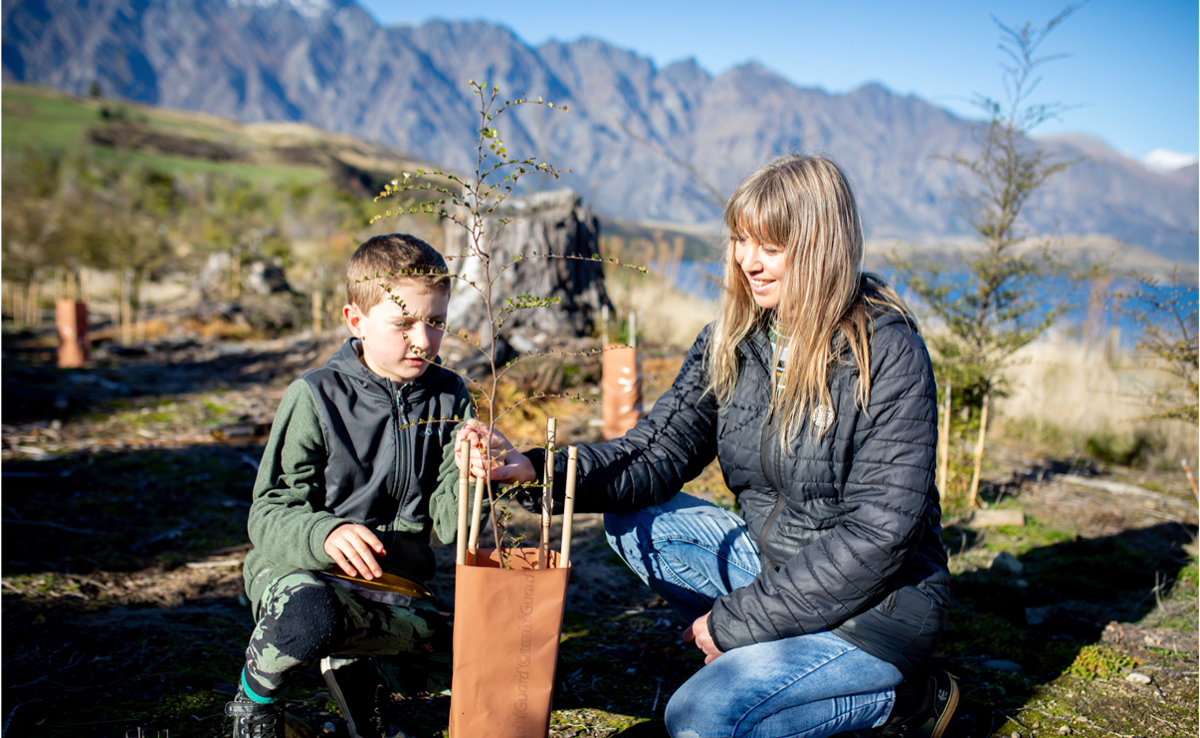
Challenges
Ā mātou wero
The challenges we face are significant, complicated, and often involve strongly divergent views over the complex array of benefits, trade-offs, and constraints.
-
Responding to climate change isn’t always easy.
The Challenge of Climate Leadership
We know that our community wants to see leadership from Council. Not only are we one of the largest employers in the district, we also invest a significant amount in public infrastructure. The way we work and invest matters and this plan will ensure Council activity considers the climate and the environment.
Council also has a role in supporting community and business activity and making connections so that we work together as a district to achieve our aspirations for climate change and biodiversity. This isn't something we can do alone - nearly every challenge we face will require a team effort from everyone in the district. Our ambition is for Council to be a leader and learner and embed climate action into our organisational culture.
The Challenge of Urban Growth
Growth is a loaded term. For some it inspires optimism and aspiration, for others frustration and concern. From one perspective, growth means more carbon emissions, more waste, more congestion. From another it means improved urban design, greater access to services, and improved transport networks.
The Queenstown Lakes Spatial Plan sets out how and where our communities will be developed to ensure our social, environmental, and economic prosperity.
The shape and form of our cities, towns and neighbourhoods influences how we live and get around, which can have a big impact on emissions and biodiversity, for example:
- Higher density dwellings generally require less energy to heat
- Creating live-work-play neighbourhoods reduces the distance people need to travel.
- Improving public transport and active transport opportunities will provide a genuine alternative to travelling by car.
- Establishing indigenous vegetation corridors, healthy water networks and riparian plantings to support biodiversity and honour the mauri of our district.
The Challenge of Tourism
The economy in the Queenstown Lakes District has been dominated by the visitor economy for decades, but in recent years there has been increasing discomfort with the impact that visitors have on our
communities and environment.During the pandemic, there were calls from both businesses and communities for tourism to intentionally ‘build back better’.
Council has partnered with Destination Queenstown and Lake Wānaka Tourism to develop the district’s first Destination Management Plan, based on sustainable development principles. Destination management is a model that has been used internationally for some time and it relates to the coordination of infrastructure and amenities, visitor experience and marketing and promotion.
However, this traditional definition is insufficient in a time of uncertainty and climate change, so a more holistic approach also now incorporates te ao māori, resident experience, productivity, emissions reduction, and environmental protection.
The Destination Management Plan takes into account the needs of all of our people, employees, businesses, the climate and our environment. Its focus will be on achieving regenerative tourism by
2030 – the right solution, in the right place, for the right people at the right time – for the benefit of the environment and our communities.The Challenge of Public Transport
Getting around by public transport helps reduce congestion on our roads and reduces the emissions from private cars. We know that our community wants a better public transport service. The 2021 Quality of Life survey for Queenstown Lakes showed that while there has been an increase from the previous year in the proportion of residents who use the bus to commute on a weekly and daily frequency (11%, up from 9% in 2020), there has also been an increase in those who never catch the bus (71%, up from 65% in 2020).
The delivery of public transport is the responsibility of Otago Regional Council. We are partnering with the regional council to improve the bus service network for our residents, as well as advocating to decarbonise
the bus fleet. Community bus trials are underway to better understand the need for public transport in the Upper Clutha.The Challenge of Agriculture
Agriculture accounts for 32.4% of total emissions in
the district. The majority of these emissions are biogenic methane
from the livestock in farms across the district, but fertiliser is also a contributor. Agriculture is the largest emitter of greenhouse gases for Otago and Aotearoa New Zealand, so it is a critical area of focus for the entire country.Work has been undertaken in the agricultural sector to look at specific targets around biogenic methane reduction and how to best equip farmers and growers with the information, tools, and support they need to reduce emissions and build resilience to climate change.
Within our district there are many examples of leading advocates, farm carbon reduction programmes, and regenerative farming practices that are helping to enable this sector transformation.
While Council has limited control to accelerate progress with this transformation, we fully support the local leadership that is being shown and will continue to explore opportunities to promote and advocate for this change.
The Challenge of Air Travel
Aviation accounts for 17.34% of total emissions in the district. This is calculated from all departing flights from Wānaka and Queenstown airports (domestic and international).
Queenstown Airport is the fourth busiest airport for passenger numbers in the country and is the gateway to Central Otago and the Southern Lakes regions. This makes Queenstown Airport an important economic driver of the region’s tourism industry and the wider local economy.
Care must be taken however to ensure that aviation emissions do not undermine the local and national shift towards net-zero carbon. Queenstown Airport Corporation (QAC) is a Council Controlled Trading Organisation with two shareholders – Queenstown Lakes District Council (75.1%) and Auckland Airport (24.9%). The Council requires that sustainability and the reduction of QAC’s carbon footprint are drivers for the strategic direction of Queenstown Airport. This includes a commitment to work with, and influence, strategic airline stakeholders in the pursuit of carbon reduction objectives and technologies. There is also a requirement to understand climate change risk, including the associated financial and legal issues.
The reliance of our district on aviation for our economy, including the tourism industry, and the contribution of the aviation industry to emissions will continue to be an important focus for the Council, and our community.
The Challenge of Waste
Managing waste is a major challenge across the world. Globally, we need to transition to a circular economy – where we keep items produced in use for longer, where waste and pollution is designed out of products, and where we keep organic waste out of landfill. This transition will take time and we will still need to manage the district’s waste while driving down greenhouse gas emissions.
Our main areas of focus are to reduce reliance on the landfill and divert waste that releases emissions, such as food waste, which can be composted.
The New Zealand Emissions Trading Scheme (ETS) regulates emissions for the waste sector. Scope Resources currently operates the Landfill at Victoria Flats, Gibbston. We ensure compliance with the ETS which includes payment of ETS levies for the emissions generated.
In 2021 a landfill gas capture and flare system was installed, which will significantly decrease emissions released into the atmosphere. In some landfills, it is possible to capture and reuse the gas emitted from the landfill. Currently the landfill does not produce enough gas for this to be possible, however we’ll continue to assess the gas output for opportunities to reuse the gas in the future.
The National Emissions Reduction Plan14 (ERP) and National Waste Strategy (NWS) have a greater focus on waste emissions and Council will review its Waste Minimisation and Management Plan* to respond to these new targets and regulatory requirements.
The Challenge of Communication
We know that it’s hard to keep up to date with everything that is happening in the climate and biodiversity space. We also know that to help support community education and behaviour change you need more than a webpage and quarterly newsletters.
That’s why we are committed to ongoing communications to make it easy and simple for people to find the latest information they are interested in. We also want to increase the visibility of the amazing work that is happening across the district and collaborate with community and partner organisations to run campaigns and education initiatives that are innovative, engaging and based around the best behaviour-change principles.
-
Explore More...



